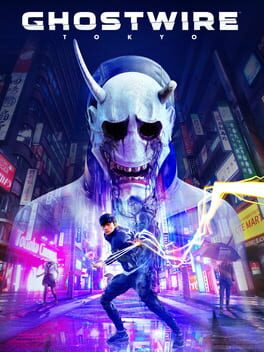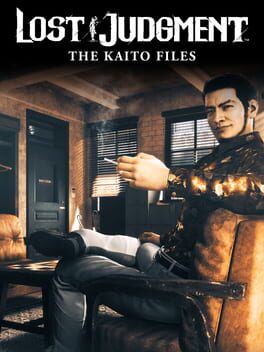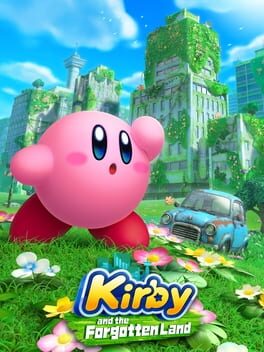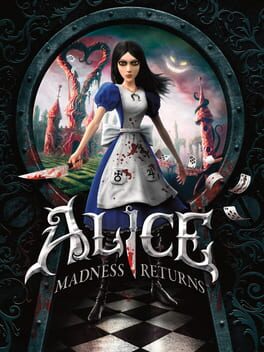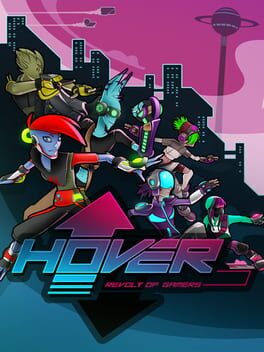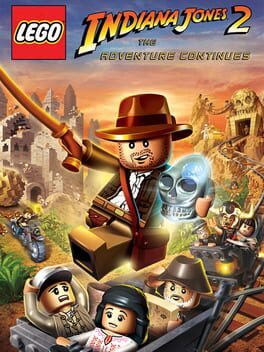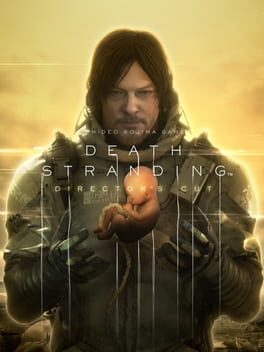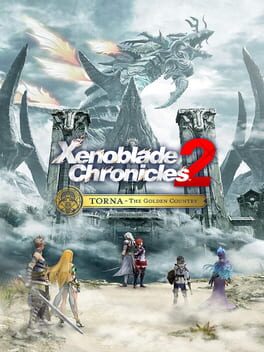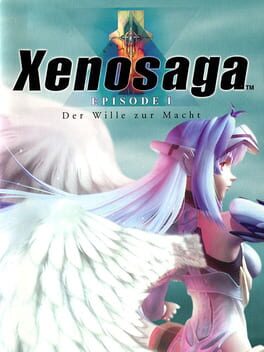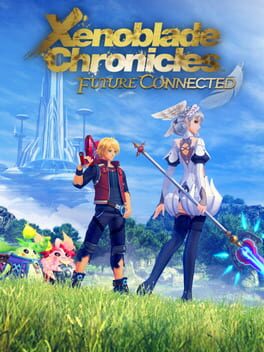Zapken
BACKER
686 Reviews liked by Zapken
Ghostwire: Tokyo
2022
I was a bit skeptical about this DLC's story while playing it as I had immediately guessed the major antagonist plot twist at the very beginning (previous Yakuza entries have traumatized me) but the ending for the DLC was so heartwarming I just couldn't help but love it. My only criticisms with this is that they do quite an amount of info dumping, especially near the end of the story, that felt like it was just drawing out the story.
With that aside, the music was absolutely stellar, going between Kaito's two styles was nice as it felt like very similar to Kiryu's styles in his games while still making it unique to Kaito, and the length was twice as long as the Majima Saga.
With that aside, the music was absolutely stellar, going between Kaito's two styles was nice as it felt like very similar to Kiryu's styles in his games while still making it unique to Kaito, and the length was twice as long as the Majima Saga.
This review contains spoilers
After 100%ing it and having such a blast with it I can easily say that its among the greatest of 3D platformers. I have wanted a true 3D Kirby game for YEARS and Im so glad this delivers on every front. Great gameplay, fun collectibles, good minigames, fantastic boss fights and amazing environments (World 4 being my favorite) . It is such a right step for the franchise and the Kirby series is already known for quality platformers so this is no exception.
Also WE GOT MORPHO KNIGHT AGAIN AND THATS AMAZING AS ALWAYS
Also WE GOT MORPHO KNIGHT AGAIN AND THATS AMAZING AS ALWAYS
Elden Ring
2022
This review will be overly negative, so I will just state in the beginning that I think that Elden Ring is an excellent video game, and I would much rather play it again, than the majority of games released in the past few years.
Despite the open world structure, Elden Ring is very familiar with the Dark Souls series. The mechanics are the same, the enemies behave the same, the character progression is the same, the quests progress in the same way, the story is told in the same way. It stands on the foundation of the 6 previous from software games. The biggest difference is obviously the open world, and the addition of horse riding in the open areas.
Due to the open nature of the world, for it to be interesting, it must be filled with a lot of stuff to keep the player engaged in the exploration. Unfortunately, it falls in the same traps as a lot of other open world games: there is a lot of repetition. Locations such as catacombs, mines and ruins, although different from each other, repeat a lot without much variation, and are not that interesting. There is a massive variety of enemies and bosses, however it's still not enough due to the absurdly gigantic scope of the game. You end up fighting some of the same bosses 6 times. The highlights are the traditional dungeons, but they are all too familiar to what we got in previous games.
Enemy behavior/AI is the same as previous games. In an open world environment, the encounters are trivialized, since it is easy to avoid everything.
The addition of Spirit Ashes trivializes every boss. To counterbalance the help of the Spirit Ashes, there are a lot of bosses that feature multiple enemies at the same time. The problem is that boss fights that feature a single enemy become extremely easy. In contrast, bosses seem to be balanced with Spirit Ashes in mind and if you don't use it, it becomes frustrating.
There was no fundamental change in the gameplay compared to Froms previous titles to encompass its new open world structure. The world is simply there. There are no new environmental hazards, there is no weather system, there are no interactions with the world. The only dangers you face are caused by the enemies.
In summary, the highest points of the game happen during the "traditional dungeons", and the lowest happen because of the open world. The change to an open world structure was detrimental to the quality of the game. If the legacy dungeons were connected to each other, and the repetitive and low quality content such as catacombs, mines, ruins, repetitive boss encounters, etc. was simply cut off, the game would be better. Unfortunately, I felt that I was playing the same game for the seventh time. It is far from being a bad game. On the contrary, it's very good, but the fatigue is real.
Despite the open world structure, Elden Ring is very familiar with the Dark Souls series. The mechanics are the same, the enemies behave the same, the character progression is the same, the quests progress in the same way, the story is told in the same way. It stands on the foundation of the 6 previous from software games. The biggest difference is obviously the open world, and the addition of horse riding in the open areas.
Due to the open nature of the world, for it to be interesting, it must be filled with a lot of stuff to keep the player engaged in the exploration. Unfortunately, it falls in the same traps as a lot of other open world games: there is a lot of repetition. Locations such as catacombs, mines and ruins, although different from each other, repeat a lot without much variation, and are not that interesting. There is a massive variety of enemies and bosses, however it's still not enough due to the absurdly gigantic scope of the game. You end up fighting some of the same bosses 6 times. The highlights are the traditional dungeons, but they are all too familiar to what we got in previous games.
Enemy behavior/AI is the same as previous games. In an open world environment, the encounters are trivialized, since it is easy to avoid everything.
The addition of Spirit Ashes trivializes every boss. To counterbalance the help of the Spirit Ashes, there are a lot of bosses that feature multiple enemies at the same time. The problem is that boss fights that feature a single enemy become extremely easy. In contrast, bosses seem to be balanced with Spirit Ashes in mind and if you don't use it, it becomes frustrating.
There was no fundamental change in the gameplay compared to Froms previous titles to encompass its new open world structure. The world is simply there. There are no new environmental hazards, there is no weather system, there are no interactions with the world. The only dangers you face are caused by the enemies.
In summary, the highest points of the game happen during the "traditional dungeons", and the lowest happen because of the open world. The change to an open world structure was detrimental to the quality of the game. If the legacy dungeons were connected to each other, and the repetitive and low quality content such as catacombs, mines, ruins, repetitive boss encounters, etc. was simply cut off, the game would be better. Unfortunately, I felt that I was playing the same game for the seventh time. It is far from being a bad game. On the contrary, it's very good, but the fatigue is real.
Elden Ring
2022
i'll never finish this because it's so big but it doesn't matter, probably a pretty easy contender for GOTY anyway. some of the bigger bosses are a bit ridiculous (looking at you Radahn) but yeah this is a blast. really the ultimate "pick up and fuck around for a few hours on a rainy day" game of the past couple of years i'd say. also fucking thank you to FromSoft because this has completely shattered my expectations for all open world games bound to come out in the next few years. feeling the shift of a worldwide "breaking free of the Matrix" moment here, death to the fifty thousand shitty Ubisoft-core checklist objective-riddled "open-world" "games"
Hover
2017
I've been struggling with what to do with Hover for a while now. It's been an uncompleted member of my backlog and "currently playing" that's remained largely untouched while I've focused on other things over the past few months. I can't deny I think it's a FANTASTIC game with the best parkour mechanics since Mirror's Edge and a fun emphasis placed on cooperative multiplayer, but I currently lack the desire to actually finish it despite only having a few hours at most left to get through at this point, and the thought of continuing to leave it floating around on my to-do list until the urge finally does return while I attend to some of the other titles vying for my attention simply doesn't appeal to me. So after much internal debate I've decided to do something I typically wouldn't and move on from it entirely, but also still give it a review in the process.
Structured like an MMO, the (poorly told and lame) story takes you through a series of hub worlds filled with other players jumping about and NPCs offering a variety of side-activities. Just about every mission you'll encounter is of the on foot race, "Gameball" match (think basketball with more platforming), or "take this item here before the clock runs out" variety. All of which is usually set against a timer. To be honest that's probably why I'm stepping away from it. Being timed in a video game is a huge pet peeve of mine. This is something I do as a leisure activity, so while I'm not against difficulty altogether, the feeling of having to rush through challenges with little margin for error can be frustrating to me when I'd rather just work at a more relaxed pace with some room for flexibility. Especially since my hands aren't as accurate as I would like.
It's a design choice I can't fault too much though as it compliments the gameplay rather nicely. Fusty Game and Midgar Studio have created a really deep movement system and this approach forces you to master every subtle complexity of it in order to make the most out of your limited, yet rechargeable energy and pick the quickest path to your objectives. There is a skill chip-based upgrade tree that you can swap out to incrementally increase your stats that I'm sure can be used to create some insanely overpowered build, but the most effective way to power through this with as little effort as possible is to bring a few buddies along for the ride. Working together with pals can trivialize most quest types and it's made easy to do thanks to cross-play.
It's worth noting that without friends to team up with the whole online aspect feels rather superfluous as the setup doesn't really do a good job of encouraging randoms to play together. Everyone you encounter will be running around doing their own thing and the later sections of the game are almost totally devoid of life altogether. So this likely won't be the place you'll go to meet new people. I wouldn't say that's truly a serious problem however. In fact, despite my nit-picks, which are the result of personal preference more than anything, the only legitimate flaw here is it's tendency to crash every now and then. It's also reported that an achievement or two are bugged.
Honestly, the most fun I had in this was exploring each large, colorful map for collectibles as it allowed me to enjoy the exhilarating motion of its jumps, flips, and grinds without feeling pressured to perform under any sort of constraints. The devs have come up with a really great and original core concept that has the potential to hook a lot of people. I realize the fact that I'm abandoning the game before seeing it through to the end kind of makes my opinion and score both irrelevant and more than likely a little confusing ("he's giving it a 9, but couldn't bring himself to beat it?"), but dropping it completely without so much as a word after the amount of time I did put into it felt kind of wrong. I think Hover is actually something pretty special. I guess it's just not 100% my thing. At least not without a full crew of familiars to run with.
9/10
Structured like an MMO, the (poorly told and lame) story takes you through a series of hub worlds filled with other players jumping about and NPCs offering a variety of side-activities. Just about every mission you'll encounter is of the on foot race, "Gameball" match (think basketball with more platforming), or "take this item here before the clock runs out" variety. All of which is usually set against a timer. To be honest that's probably why I'm stepping away from it. Being timed in a video game is a huge pet peeve of mine. This is something I do as a leisure activity, so while I'm not against difficulty altogether, the feeling of having to rush through challenges with little margin for error can be frustrating to me when I'd rather just work at a more relaxed pace with some room for flexibility. Especially since my hands aren't as accurate as I would like.
It's a design choice I can't fault too much though as it compliments the gameplay rather nicely. Fusty Game and Midgar Studio have created a really deep movement system and this approach forces you to master every subtle complexity of it in order to make the most out of your limited, yet rechargeable energy and pick the quickest path to your objectives. There is a skill chip-based upgrade tree that you can swap out to incrementally increase your stats that I'm sure can be used to create some insanely overpowered build, but the most effective way to power through this with as little effort as possible is to bring a few buddies along for the ride. Working together with pals can trivialize most quest types and it's made easy to do thanks to cross-play.
It's worth noting that without friends to team up with the whole online aspect feels rather superfluous as the setup doesn't really do a good job of encouraging randoms to play together. Everyone you encounter will be running around doing their own thing and the later sections of the game are almost totally devoid of life altogether. So this likely won't be the place you'll go to meet new people. I wouldn't say that's truly a serious problem however. In fact, despite my nit-picks, which are the result of personal preference more than anything, the only legitimate flaw here is it's tendency to crash every now and then. It's also reported that an achievement or two are bugged.
Honestly, the most fun I had in this was exploring each large, colorful map for collectibles as it allowed me to enjoy the exhilarating motion of its jumps, flips, and grinds without feeling pressured to perform under any sort of constraints. The devs have come up with a really great and original core concept that has the potential to hook a lot of people. I realize the fact that I'm abandoning the game before seeing it through to the end kind of makes my opinion and score both irrelevant and more than likely a little confusing ("he's giving it a 9, but couldn't bring himself to beat it?"), but dropping it completely without so much as a word after the amount of time I did put into it felt kind of wrong. I think Hover is actually something pretty special. I guess it's just not 100% my thing. At least not without a full crew of familiars to run with.
9/10
Metroid Dread
2021
flashback to my fusion review: I am not a fan of that game. the new concepts it brings to metroid are interesting, but the design language it draws from previous metroid games is not. as the game takes a more linear approach to its map design, it often locks you to a small set of rooms at a time to figure out how to proceed, and when it provides a legitimate puzzle it works wonderfully. however, the game mostly relies on tedious invisible blocks instead of properly testing your understanding of the tools at your disposal. likewise there's an increased focus on bosses, but with little added depth to the encounters past the "shoot missiles like crazy and occasionally dodge attacks." even SA-X is mostly restricted to scripted encounters and of no real threat to the player other than a couple of chase sequences. the concepts and mechanics they draw from super metroid work in super because that game has a slower pace, a wider realm to explore in, and a relatively forgiving difficulty overall. the mixups that fusion presents are novel but can't thrive when they're welded to mechanics meant for a different kind of experience.
what dread succeeds at is rewriting the mechanics of old-school metroid to make the fusion concepts work. the world structure is now not meant to be a contiguous space but a linearized series of discrete areas broken up by items you need or challenges you must overcome. bosses are now fleshed out with phases of discrete attacks that rely on samus's wider set of movement options. rather than the sparse SA-X sequences of fusion, you now are chased by EMMIs as you criss-cross their zones in order to progress, with stealth moves now baked into the mechanics. the environments even draw heavily from fusion's synthetic/organic dichotomy. it's hard to argue that the resulting project really feels like old-school metroid, but it's a very fun simulacrum of that style.
of course, I think it has to be said there's a sense of artifice to the "metroidvania" aspect of it, since your progress is so tightly constrained that pushing against the game will yield no quarter. the doors are locked behind you at every opportunity to keep you moving completely forward, and the planet itself isn't really explorable in a traditional metroid sense until the point of no return at the end of the game. the upside to this is there's really no getting lost, and hidden items are generally laid out so that you'll always run into them when you have the power-up you need to get them. it's a very western take on the series where the areas are laid out like a series of Skinner boxes, where you have just enough in each place to solve something cool and get your dopamine before you're shuttled to the next one. the biggest downside of this is once you actually get out into the world it doesn't feel like it breathes like in older games. I'm not really gonna fault it for its level design on the micro scale, as fusion does basically the same thing this one does. what makes it feel more jarring is that fusion at least had ludonarrative coherence for why the areas were so choppy, whereas this game seems like it should flow like a living area.
to combat the superficiality of the exploration content, the devs chose to raise the execution ceiling to keep the gameplay satisfying. this is definitely the hardest metroid game other than fusion, but it's balanced out by a wealth of new movement and combat options. bosses pretty much follow the same pattern as in the latter half of samus returns: multi-phase fight, spend most of your time dodging, and use the parry when you can. I didn't really have complaints about any of these, though I could've used maybe one more big boss fight towards the end, maybe instead of golzuna. samus now has access to a "flash shift" dash move that puts the game in line with a lot of other big western platformers like hollow knight and celeste, as well as a very handy slide maneuver that doubles as insta-morph-ball when you're standing still. these two really extend the expressiveness of the player's tactics beyond a point that space jump alone allowed.
there's also the EMMI areas, which I think do a better job of capturing the fear of being chased than SA-X did. the early section where you're forced to drain the right amount of water to get into a chute leading out for the area while the EMMI creeps up is a perfect implementation of this concept. later EMMI zones don't really capture this however... it ends up being more like walking in and out until you get a cycle where the EMMI is far away and then running like hell. part of this is because stealth does not seem to be the viable option the developers intended, or at least that's how felt after trying it for a while. the EMMI is so highly mobile that it feels better to evade it rather than hide and hope that it doesn't decide to blindly run right into you. the omega cannon sections make up for this a bit in how they encourage you to search the environments you were previously hauling ass through to look for long areas you can comfortably fire from. even with the flaws present, this exceeded my expectations of the quality of these sections from the trailer, so I'd say it's a net win in the end.
the presentation didn't strike me the wrong way at any point - thank god for how good the framerate is - but it isn't all great. the UI easily trumped all other aspects for ugliest aspect for me: that font feels so wrong to be slapped on absolutely everything, and it reeks a bit of Unity project style menus in a way. the actual environments mix up locales often however, and hit a variety of both natural and constructed styles. it's unquestionably a very bright game tho, as it's kept in line with nintendo's in-house graphics style for the most part. however, there's still a great deal of detail to be had, even if the areas end up a little on the generic side.
there's a couple other random things I wanted to bring up: there are honestly too many items in this game. there's not enough time to enjoy a new upgrade before you get another one, and getting major upgrades super late in the game is a letdown considering how little you get to use them before the final boss. the map could use some fine-tuning to make it less visually dense, or at least a better way to see what items on your map hasn't been collected. the parry is utilized much better than in samus returns, and doesn't impede the action remotely as much as it used to. the story is not really at the forefront, but there's a very cool cutscene halfway through that was a fun treat for fans that put a grin on my face.
it's odd to play an official metroid game that draws so much from the indie games that came many years after the last mainline titles, but mercurysteam really felt themselves with this one. the game repackages the old standards of metroid into an extremely polished experience that stands as one of the most solid switch titles to have dropped on switch up to now. if mercurysteam keeps working on this series, I'll be happy to play whatever they put out without the reservations I went into this game with after samus returns. there's still room to go up from here if they keep listening to fan feedback.
what dread succeeds at is rewriting the mechanics of old-school metroid to make the fusion concepts work. the world structure is now not meant to be a contiguous space but a linearized series of discrete areas broken up by items you need or challenges you must overcome. bosses are now fleshed out with phases of discrete attacks that rely on samus's wider set of movement options. rather than the sparse SA-X sequences of fusion, you now are chased by EMMIs as you criss-cross their zones in order to progress, with stealth moves now baked into the mechanics. the environments even draw heavily from fusion's synthetic/organic dichotomy. it's hard to argue that the resulting project really feels like old-school metroid, but it's a very fun simulacrum of that style.
of course, I think it has to be said there's a sense of artifice to the "metroidvania" aspect of it, since your progress is so tightly constrained that pushing against the game will yield no quarter. the doors are locked behind you at every opportunity to keep you moving completely forward, and the planet itself isn't really explorable in a traditional metroid sense until the point of no return at the end of the game. the upside to this is there's really no getting lost, and hidden items are generally laid out so that you'll always run into them when you have the power-up you need to get them. it's a very western take on the series where the areas are laid out like a series of Skinner boxes, where you have just enough in each place to solve something cool and get your dopamine before you're shuttled to the next one. the biggest downside of this is once you actually get out into the world it doesn't feel like it breathes like in older games. I'm not really gonna fault it for its level design on the micro scale, as fusion does basically the same thing this one does. what makes it feel more jarring is that fusion at least had ludonarrative coherence for why the areas were so choppy, whereas this game seems like it should flow like a living area.
to combat the superficiality of the exploration content, the devs chose to raise the execution ceiling to keep the gameplay satisfying. this is definitely the hardest metroid game other than fusion, but it's balanced out by a wealth of new movement and combat options. bosses pretty much follow the same pattern as in the latter half of samus returns: multi-phase fight, spend most of your time dodging, and use the parry when you can. I didn't really have complaints about any of these, though I could've used maybe one more big boss fight towards the end, maybe instead of golzuna. samus now has access to a "flash shift" dash move that puts the game in line with a lot of other big western platformers like hollow knight and celeste, as well as a very handy slide maneuver that doubles as insta-morph-ball when you're standing still. these two really extend the expressiveness of the player's tactics beyond a point that space jump alone allowed.
there's also the EMMI areas, which I think do a better job of capturing the fear of being chased than SA-X did. the early section where you're forced to drain the right amount of water to get into a chute leading out for the area while the EMMI creeps up is a perfect implementation of this concept. later EMMI zones don't really capture this however... it ends up being more like walking in and out until you get a cycle where the EMMI is far away and then running like hell. part of this is because stealth does not seem to be the viable option the developers intended, or at least that's how felt after trying it for a while. the EMMI is so highly mobile that it feels better to evade it rather than hide and hope that it doesn't decide to blindly run right into you. the omega cannon sections make up for this a bit in how they encourage you to search the environments you were previously hauling ass through to look for long areas you can comfortably fire from. even with the flaws present, this exceeded my expectations of the quality of these sections from the trailer, so I'd say it's a net win in the end.
the presentation didn't strike me the wrong way at any point - thank god for how good the framerate is - but it isn't all great. the UI easily trumped all other aspects for ugliest aspect for me: that font feels so wrong to be slapped on absolutely everything, and it reeks a bit of Unity project style menus in a way. the actual environments mix up locales often however, and hit a variety of both natural and constructed styles. it's unquestionably a very bright game tho, as it's kept in line with nintendo's in-house graphics style for the most part. however, there's still a great deal of detail to be had, even if the areas end up a little on the generic side.
there's a couple other random things I wanted to bring up: there are honestly too many items in this game. there's not enough time to enjoy a new upgrade before you get another one, and getting major upgrades super late in the game is a letdown considering how little you get to use them before the final boss. the map could use some fine-tuning to make it less visually dense, or at least a better way to see what items on your map hasn't been collected. the parry is utilized much better than in samus returns, and doesn't impede the action remotely as much as it used to. the story is not really at the forefront, but there's a very cool cutscene halfway through that was a fun treat for fans that put a grin on my face.
it's odd to play an official metroid game that draws so much from the indie games that came many years after the last mainline titles, but mercurysteam really felt themselves with this one. the game repackages the old standards of metroid into an extremely polished experience that stands as one of the most solid switch titles to have dropped on switch up to now. if mercurysteam keeps working on this series, I'll be happy to play whatever they put out without the reservations I went into this game with after samus returns. there's still room to go up from here if they keep listening to fan feedback.
Elden Ring
2022
I didn't really know what to expect with Elden Ring. Going in, all I knew was that it was "open world Dark Souls" but what did that mean? Early reviews were saying 30 hours, I was confidant the horse controls were going to be jank, and above all else, I feared for the game design. From Soft are MASTERS at linear(ish) level design with plenty of shortcuts and well thought out enemy placements. Surely this would all go away in an open world format. Boy, were my expectations off.
Elden Ring is nothing short of FromSoft's masterpiece. The combat is a natural evolution of Dark Souls III and Bloodborne in terms of speed, with returning concepts like my beloved power-stancing from Dark Souls II. Their work on Sekiro also allowed them to experiment greatly with verticality in both level design and combat encounters. The horse feels great too, even being a great tool to jump on and off of it mid-fight if it is permitted.
In terms of challenge, I would say it's pretty open to being as easy or difficult as you want to make it. Tools like the ash summons can make for useful diversions/allies during battles without having to rely on other players, and there are plenty of busted weapons, spells, and incantations for you to abuse as you like.
But beyond those FromSoft series staple refinements, the real key differentiator with this entry is the exploration. Elden Ring gives you very little direction beyond the first hour of where to go and what to do and the world is massive and full of interesting catacombs, tombs, and castles. You are constantly presented with gorgeous, scenic vistas full of rotten enemies. A friend told me from what they saw it's like playing through a concept art book and that is absolutely right. Though BotW isn't the first to design an open-world this way, it's the most recent example that comes to mind so I will use it as the point of comparison. You feel compelled to explore places you see in the distance simply because they look interesting, and you are always amply rewarded for your efforts. It's incredible how a studio with practically no experience designing this type of game knocks it out of the park on their first try in a way most studios have failed.
That isn't to say the experience is ALL golden, I do have some minor complaints. Side quests and optional stories are as obtuse as they are in all FromSoft games, but in a world THIS massive it's almost impossible to stumble through them accidentally. A guide feels mandatory if you want to follow certain characters and their escapades. Some other minor things that would be nice to have are stat comparisons in shops to the gear you currently have equipped, and in general a tab of your inventory for new item pickups would be nice because it's easy to miss what you just picked up is supposed to be.
Minor complaints aside, Elden Ring is undoubtedly one of FromSoft's finest works, and maybe even their best title. It feels like the ultimate Souls experience combining the size and scale of all of their games in one. If you enjoy a challenge, exploration, and some rad boss fights, this game is a no brainer to pick up.
Elden Ring is nothing short of FromSoft's masterpiece. The combat is a natural evolution of Dark Souls III and Bloodborne in terms of speed, with returning concepts like my beloved power-stancing from Dark Souls II. Their work on Sekiro also allowed them to experiment greatly with verticality in both level design and combat encounters. The horse feels great too, even being a great tool to jump on and off of it mid-fight if it is permitted.
In terms of challenge, I would say it's pretty open to being as easy or difficult as you want to make it. Tools like the ash summons can make for useful diversions/allies during battles without having to rely on other players, and there are plenty of busted weapons, spells, and incantations for you to abuse as you like.
But beyond those FromSoft series staple refinements, the real key differentiator with this entry is the exploration. Elden Ring gives you very little direction beyond the first hour of where to go and what to do and the world is massive and full of interesting catacombs, tombs, and castles. You are constantly presented with gorgeous, scenic vistas full of rotten enemies. A friend told me from what they saw it's like playing through a concept art book and that is absolutely right. Though BotW isn't the first to design an open-world this way, it's the most recent example that comes to mind so I will use it as the point of comparison. You feel compelled to explore places you see in the distance simply because they look interesting, and you are always amply rewarded for your efforts. It's incredible how a studio with practically no experience designing this type of game knocks it out of the park on their first try in a way most studios have failed.
That isn't to say the experience is ALL golden, I do have some minor complaints. Side quests and optional stories are as obtuse as they are in all FromSoft games, but in a world THIS massive it's almost impossible to stumble through them accidentally. A guide feels mandatory if you want to follow certain characters and their escapades. Some other minor things that would be nice to have are stat comparisons in shops to the gear you currently have equipped, and in general a tab of your inventory for new item pickups would be nice because it's easy to miss what you just picked up is supposed to be.
Minor complaints aside, Elden Ring is undoubtedly one of FromSoft's finest works, and maybe even their best title. It feels like the ultimate Souls experience combining the size and scale of all of their games in one. If you enjoy a challenge, exploration, and some rad boss fights, this game is a no brainer to pick up.
Xenogears
1998
This is a work from the time when Square was the strongest game company in Japan, both in name and reality.
If there is a point or an ultimate in storytelling in a game scenario, this work is the closest to it.
For me, this is one of the standards of "game scenario". When I play a game that deals with robots, especially a later one, I always think of this one first.
In this sense, "13 sentinels" was a failure. (I'll write more about it in my review of The 13 sentinels).
As a child at the time of its release, I was simply overwhelmed by the worldview, which was based on mythology and religion, with parodies and homages to multiple science fiction and anime.
To digress a little, let me explain the historical/cultural context in which this game was made.
Christianity is not generally understood in Japan (although some people are very passionate about it), so the heretical Gnosticism is not understood, nor is Nietzsche, who criticised Christianity itself, except for a few crazies. Freud, Jung and Adler have also gained acceptance in recent years, but only subtly.
I have no idea how this tendency to disregard religion has evolved in other countries.
In the case of Japan, the Aum Shinrikyo affair has led to a view of religion that can be seen as fearful, contemptuous or allergic.
In this context, with the exception of a series of works by Atlus (Megami Tensei and its offshoot, Persona), the culture of understanding and incorporating mythology and religion into games has died out.
Nowadays, myths and religions are treated as ornaments that look good and "seem to have a deeper meaning that we don't know what it is".
Again, For me, the standard of game scenario is this work. It's like a trauma.
It is both happy and unhappy.
When it was released,
“Wait, wait. I don't understand all that theological and philosophical!"
"Do you usually put in stories/parodies of minor works like this?”
"It's crazy! Whoever made this is crazy!"
I was like.
As of 2021, I played it again.
"It's crazy…”
The conclusion of the game is quite simple, however, despite all the mythological and philosophical themes and episodes.
Human weakness and strength, cruelty and kindness, ugliness and beauty. Above all, men and women. Fei and Elly are two people who make you feel all kinds of emotions.
It's easy to get caught up in the huge number of settings and deep themes, but the heart of the xenogears is the story. The later Xeno series forgot about this.
Xenoblade 2 has been released, but it's probably a strategic defeat. (I don't feel like playing.)
Not that it matters, but the Xeno series is like Woody Allen. (Repeating the cycle of masterpieces and bad movies)
I hate believers. A masterpiece is a masterpiece, and if it doesn't live up to that, it's a defeat, and if it doesn't, you're just a bad.
There's a lot more to say, but it's probably over 10,000 words, so I'll leave it to someone else.
Is it a something sign that this year (2021) there are some many good commentary videos on this game?
Explanations and videos of Xenogears that I thought were good. (Memo for myself.)
I think it's great what they're trying to do.
https://www.youtube.com/user/WarialaskyPlays
A clear explanatory video that goes beyond the Perfect Works. (Japanese)
https://www.youtube.com/watch?v=KnCo3HQnRF0
A very challenging Xenogears video that goes beyond the strategy guide. (Japanese. He's crazy.)
https://www.youtube.com/watch?v=mdvNteIg9dw
If there is a point or an ultimate in storytelling in a game scenario, this work is the closest to it.
For me, this is one of the standards of "game scenario". When I play a game that deals with robots, especially a later one, I always think of this one first.
In this sense, "13 sentinels" was a failure. (I'll write more about it in my review of The 13 sentinels).
As a child at the time of its release, I was simply overwhelmed by the worldview, which was based on mythology and religion, with parodies and homages to multiple science fiction and anime.
To digress a little, let me explain the historical/cultural context in which this game was made.
Christianity is not generally understood in Japan (although some people are very passionate about it), so the heretical Gnosticism is not understood, nor is Nietzsche, who criticised Christianity itself, except for a few crazies. Freud, Jung and Adler have also gained acceptance in recent years, but only subtly.
I have no idea how this tendency to disregard religion has evolved in other countries.
In the case of Japan, the Aum Shinrikyo affair has led to a view of religion that can be seen as fearful, contemptuous or allergic.
In this context, with the exception of a series of works by Atlus (Megami Tensei and its offshoot, Persona), the culture of understanding and incorporating mythology and religion into games has died out.
Nowadays, myths and religions are treated as ornaments that look good and "seem to have a deeper meaning that we don't know what it is".
Again, For me, the standard of game scenario is this work. It's like a trauma.
It is both happy and unhappy.
When it was released,
“Wait, wait. I don't understand all that theological and philosophical!"
"Do you usually put in stories/parodies of minor works like this?”
"It's crazy! Whoever made this is crazy!"
I was like.
As of 2021, I played it again.
"It's crazy…”
The conclusion of the game is quite simple, however, despite all the mythological and philosophical themes and episodes.
Human weakness and strength, cruelty and kindness, ugliness and beauty. Above all, men and women. Fei and Elly are two people who make you feel all kinds of emotions.
It's easy to get caught up in the huge number of settings and deep themes, but the heart of the xenogears is the story. The later Xeno series forgot about this.
Xenoblade 2 has been released, but it's probably a strategic defeat. (I don't feel like playing.)
Not that it matters, but the Xeno series is like Woody Allen. (Repeating the cycle of masterpieces and bad movies)
I hate believers. A masterpiece is a masterpiece, and if it doesn't live up to that, it's a defeat, and if it doesn't, you're just a bad.
There's a lot more to say, but it's probably over 10,000 words, so I'll leave it to someone else.
Is it a something sign that this year (2021) there are some many good commentary videos on this game?
Explanations and videos of Xenogears that I thought were good. (Memo for myself.)
I think it's great what they're trying to do.
https://www.youtube.com/user/WarialaskyPlays
A clear explanatory video that goes beyond the Perfect Works. (Japanese)
https://www.youtube.com/watch?v=KnCo3HQnRF0
A very challenging Xenogears video that goes beyond the strategy guide. (Japanese. He's crazy.)
https://www.youtube.com/watch?v=mdvNteIg9dw
